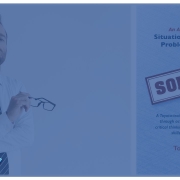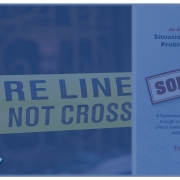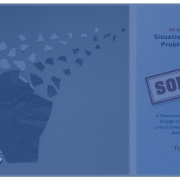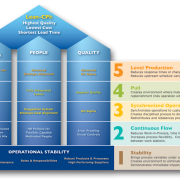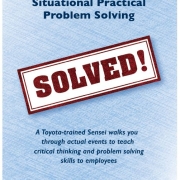Relying on Experts
Case History of Five Reasons Why We Fail to Solve Problems and What We Can Do About It! — Relying on Experts
Part 3 of a 5-Part Series
The following are five reasons why we fail in problem solving.
- Making assumptions
- Over-relying on experience
- Relying on “experts”
- Coming to the problem with preconceived ideas
- Depending too much on memories
In this blog I will tackle “relying on experts” and will go into more detail on the other four reasons in other blogs.
Be Cautious When Using Experts for Solving Problems
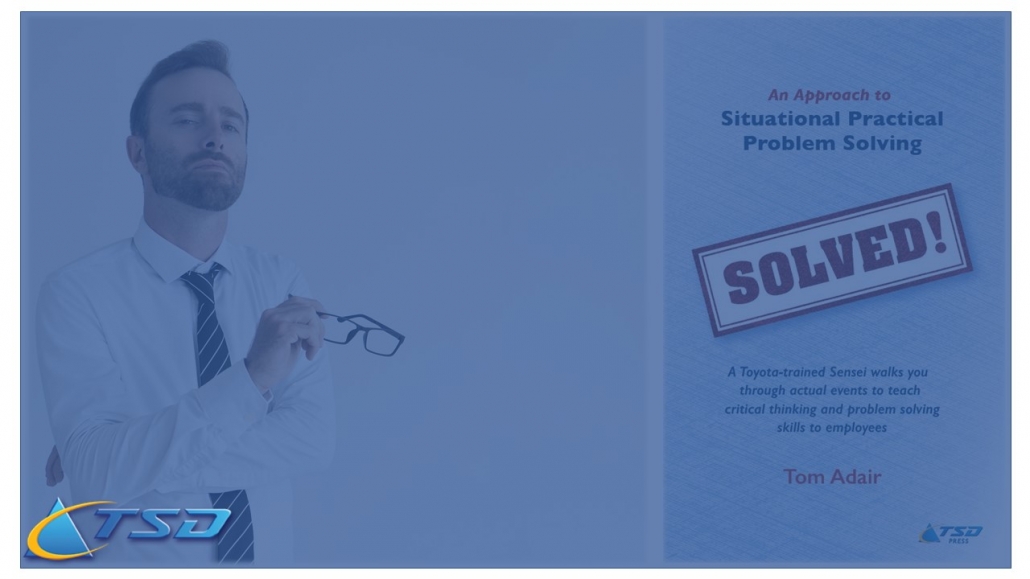 According to the dictionary an expert is someone with comprehensive or authoritative knowledge in a particular area. Whenever possible experts should be sought out when trying to fully understand a problem before attempting to solve it. These people are valuable resources and the best of them, the true experts, will have spent years training and developing special skills and subject matter experience.
According to the dictionary an expert is someone with comprehensive or authoritative knowledge in a particular area. Whenever possible experts should be sought out when trying to fully understand a problem before attempting to solve it. These people are valuable resources and the best of them, the true experts, will have spent years training and developing special skills and subject matter experience.
However, I should signal a note of caution. Expert does not mean mistake proof. Not only can things go wrong, but sometimes, the very nature of “expertise” raises the issue of bias and other obstacles to an impartial analysis. You must be on guard for the “to a hammer everything looks like a nail” syndrome. There are a number of things to watch for when consulting experts, and some are listed below.
- Authority Creep – Experts know a lot but they don’t know everything. Beware of those who use their role as authority figure to move beyond their subject matter. Or for that matter, beware of your inclination to attribute more breadth to experts’ opinions than you should, just because they’re experts.
- Hubris – Some experts exhibit a certain level of conceit; they think their opinion is the right one since they are the “recognized expert.” Experts that lack humility are unlikely to listen to differing views or learn from changing situations.
- Bias – Experts are human and come with their own biases such as confirmation bias. This means favoring or interpreting information in a way that confirms one’s preexisting beliefs.
- Experts’ Expectations – There is a self-fulfilling prophecy at work when you engage experts. You requested their help, so experts, by virtue of their status, feel obligated to provide the “right” answer or at least some answer to save face. However, sometimes there is no one right answer. They may tell you what they think you wish to hear.
- Our Expectations – When we engage experts, we are predisposed to expect the “right” answer and we tend to accept what they say as gospel, especially when they are influential, self-confident and highly qualified. We often trust their conclusions without challenge, foregoing our obligation to think critically regardless of the source of information. And sometimes, we accept opinions because experts offer them and accepting them at face value is the path of least resistance.
Practical Tips
The selection of an expert is key to all that follows. In order to get maximum value, the expert must be not only technically qualified and use fact-based analysis, but he or she needs to exhibit humility and the ability to accept the opinions of others. At the same time, you must assess the expert’s ability to fit into the team dynamic, and reflect whether the team has the ability to push back if they disagree with the expert.
Also, when engaging experts, introduce them to your problem solving team as people with experience or knowledge of the subject, rather than experts. In this way your team is less likely to pass off their obligation to think critically. Of course, this assumes your experts are humble enough to agree. When I’m engaged to problem solve or train others, I prefer they see me as a “practitioner” rather than an “expert.” I’m on a constant journey to learn all I can about problem solving and by no means have I cornered the market on expertise.
Real-world Example
I was consulting with a company when an expert, who was a member of upper management, was called into a team problem solving meeting without my knowledge. He was introduced as an expert and immediately offered his advice. He was adamant about the path the team should take and would not entertain any alternatives. His ego was on the line. He was very persuasive and charismatic. Everyone was in awe of him and they agreed to take his suggested path.
I could see that my team was failing to think critically about his advice and in effect, they delegated the solution to the expert. I spoke up and asked him if he would be willing to attend another meeting to answer some questions about what he was proposing. We wanted to give some thoughtful reflection about his advice. He replied he would and we set another time and date for the meeting. After he left I went into damage control mode.
We held that follow-up meeting, had some frank and critical exchanges, and ended up adopting the expert’s initial recommendations, with some important revisions that arose from the team’s input. Afterward, I conducted a team reflection meeting and discussed what we had learned from this experience and how to keep it from happening again. Most of what happened could have been prevented with good facilitation techniques and forethought.
Lessons Learned
The expert thought he was right and wasn’t open to questions which challenged his opinions. In his mind, he was brought into the meeting to provide the “right” answer.
This is what should have happened:
- The facilitator prepares the team for the meeting (prior to expert’s appearance), reviewing the pros and cons of inviting an expert to attend.
- The team prepares a list of questions to send to him prior to the meeting. This enables the expert to better prepare and channel the discussion in a meaningful order.
- The meeting facilitator introduces the person as someone who brings a lot to the table – has a lot of background and knowledge regarding this problem (avoiding the loaded label of “expert”).
- When the meeting starts the facilitator begins with the agenda and reviews the ground rules. This sets the tone for the meeting for everyone including the expert.
- One ground rule is to review factual data and operate on facts and not opinions. Another ground rule is to question everything, preparing everyone to hear opposing views.
- The agenda includes time for a brainstorming period, where the participants ask, “What is it we are not asking or exploring?” This is a formal way to raise insightful questions without openly challenging the expert, thereby saving him face.

